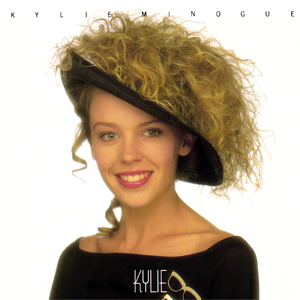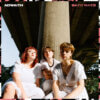Whilst I was beginning to write this article, I got an email from my Mum. She wanted to know if she should hang onto some vintage copies of the NME from the mid-90s which have not yet been decluttered from my Parents’ to add to my own three hundred miles away and helpfully sent me some photos of the issues concerned. One of them is from the autumn of 1995 when Kylie Minogue appeared on the cover with Nick Cave. This was to promote their single ‘Where The Wild Roses Grow.’ Of course I want her to hang onto them. This was (amongst other things) a period when my faith in Kylie Minogue was paying off.
But we’re getting ahead of ourselves. Seven years previously, when I first encountered Kylie, the likelihood of her making a record with Nick Cave was something that the odds on would have been incredible – if I had been allowed to enter a bookies. I was only eleven years old. I hadn’t heard of Nick Cave – who it transpires was getting into fights with NME journalists – but Kylie was quite a presence in my life.
‘The past is a foreign country: they do things differently there‘ wrote L.P. Hartley in his novel The Go-Between. So it was in Britain in 1988. But one of the things that was a constant in the country on the only four television channels was the Australian soap opera Neighbours. Kylie played the tomboyish Charlene Mitchell who wanted to be a car mechanic. Episodes of Neighbours shown in Britain were eighteen months behind Australia, and it had become a sensation, and in our pre-internet world any information that would happen was gleefully shared. It was even said that Eton College, no less, had rearranged the school timetable so that the boys could watch it, and at one point it was claimed that more people watched Neighbours in Britain than lived in Australia.
There had started to be a trend of soap stars aiming for pop hits, and Britain’s Eastenders had produced several in the previous few years (if you want to look up ‘hits’ (reshuffle that word for their true value), but I think it’s fair to say that songs by Nick Berry, Letitia Dean and Paul Medford and Anita Dobson are best left in the past. So when Kylie released ‘I Should Be So Lucky‘ her first UK single, she was starting to challenge the idea that these songs might be more than novelties. It had two videos that summed up the sheer innocence of her appeal and joy of the track, and went to no.1 for five weeks. One the official video of her walking around a flat and running a bath (presumably not hers, for what nineteen year old can afford a white grand piano?) and the other a BBC-commissioned one where she is driven around Sydney in a BMW convertible by a cheerful-looking bloke with a mullet.
It opens the debut album, with its cheeky photo of Kylie with a brim but no hat. The album was produced by Stock Aitken and Waterman, who wrote all but one of its ten tracks and produced the record. By this point SAW were dominating the airwaves and their conveyor belt approach was sneered at by some of the cognoscenti (usually the same people who loved Motown, which had had a pretty similar approach in the sixties). While the production may be of its time, the reality is that these are well-crafted pop songs (even if written incredibly quickly, as in the case of ‘Lucky).’ In future years the words to the song would be recited as a poem by Kylie, and it would make the NME‘s Top 100 Indie singles list in 1992. It would also make the list of Gary Mulholland‘s era defining This is Uncool – The 500 Greatest Singles Since Punk And Disco at the start of the millennium.
The second hit was ‘Got To Be Certain.’ If not as much of an instant classic as its predecessor, it shows that it was no fluke. Was it another piece of bubblegum pop marketed at teenagers? Yes it was – but that’s exactly what it was meant to be. (Do you criticize Slayer for being heavy? or Joy Division for being dark?)
The full album came out in July and the third single ‘The Locomotion‘ was released the following month. ‘The Loco-motion’ (there seem to be several versions of the spelling) had been the start of her career in Australia a year earlier. Written by Gerry Goffin and Carole King, it had originally been a hit a quarter of a century earlier for Little Eva. It was the only song not written by SAW but it fit perfectly on the record.
The album was essentially a whole lot of songs that could have been singles – much like The Cure‘s The Head On the Door from 1985. The second side started with ‘Turn It Into Love‘ which would be a hit for Hazell Dean in the summer of 1988.
The final single released from the album in the UK was ‘Je Ne Sais Pas Pourquoi‘ which ensured that most young people understood the French phrase for ‘I Don’t Know Why’ (the French does sound better as a song title, to be honest) and like ‘Certain‘ and ‘The Locomotion‘ peaked at no.2
The year would be topped off by the rather saccharine duet with Jason Donovan -‘Especially For You‘ which would top the charts but that would have been rather slowing the pace here. It’s ten tracks that even if you separate the of its time production are actually well-written tracks and had they been from the pens of Holland-Dozier-Holland you suspect might have been considered ok to like, for those people who could not bring themselves to admit it.
Personally, listening to this album again has been rather fun. As my classmates and I got older,within a year of this album coming out, I was intrigued by how many of them suddenly claimed not to like her. Just as years later, when she put out ‘Spinning Around‘ after many reinventions she was having her biggest hit in years with a song that harked back to her first album. Hmmm…
The hipsters and trendies, poor dears, will never understand. This album wasn’t meant to be profound or cool – instead it was just about sheer joy. Perfect pop as much as anything the likes of Saint Etienne ever did. There would be more acceptance and an acknowledgement of being all sorts of icon, but this is where it all began. To listen to this again is to be reminded of simpler times, when money was saved up to buy singles rather than trying to pay the bloody bills.
Leave your cynicism at the door and enjoy.




